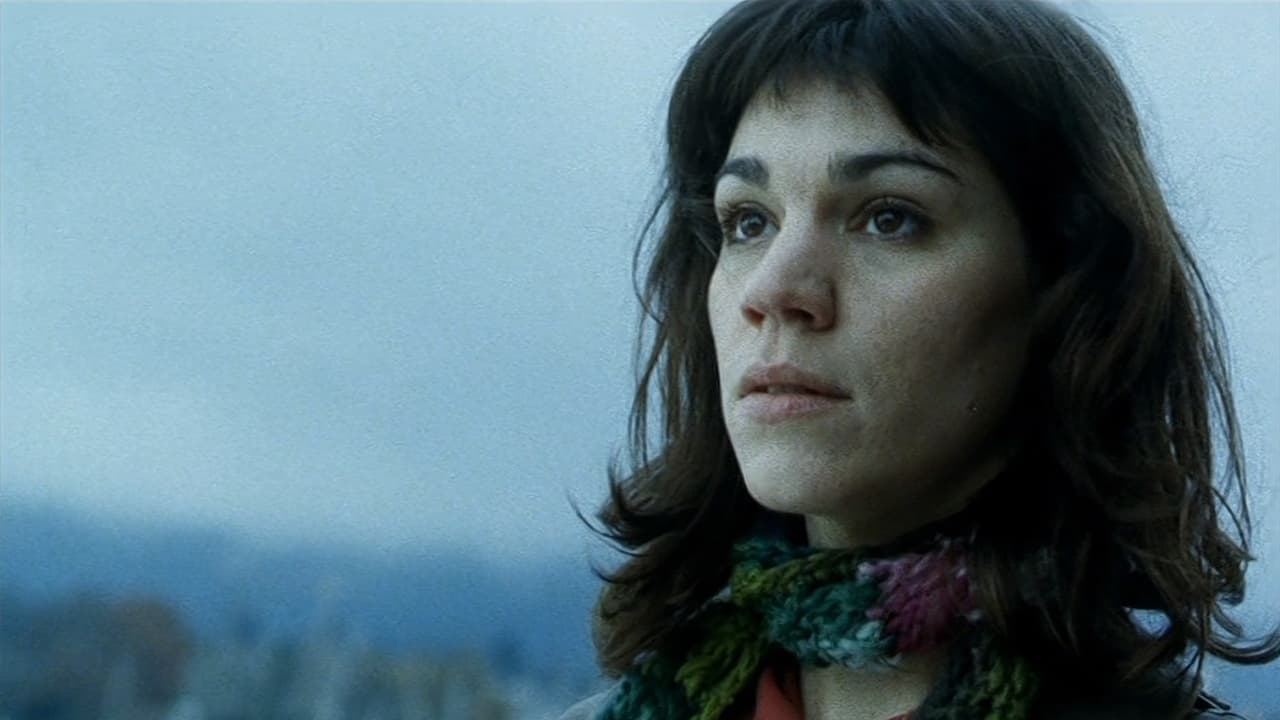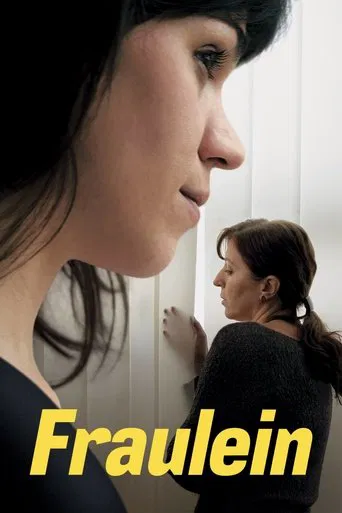

A young woman has come to Switzerland from Bosnia, and gets a job at a cafeteria run by a joyless martinet woman from that region, and another woman from that region is a coworker. Friends and relatives of the latter two women are also in the mix, while the young woman dances in clubs and has various lovers. She seems happy compared to the two glum older women-but she has seen the then-recent war in her country and has her own dark secrets which are revealed.The young woman tries and succeeds in bringing happiness to the cafeteria owner, but much of the movie is confusing, and was probably not meant for a non-European audience who probably would understand the protagonists' situation better. The movie just didn't cut it for me.
... View More"Das Fräulein" or "Fraulein" is a Swiss/German co-production from 2006, so this one had its 10th anniversary last year already. It is the most known work by director Andrea Staka and she is also one of the several writers in here. The film received a pretty solid deal of awards recognition and it is a relatively brief film at only roughly 75 minutes. This is also a positive factor actually because the film dragged on more than just a few occasions and I never managed to develop any interest in the female protagonist (played by Mirjana Karanovic) or any of the supporting players. One reason may be that I do not really know any of the actors in here, another would be that I have never been to Switzerland and it is more of a Swiss than a German film for sure. But there are also Eastern European components to this one, but this already becomes visible pretty quickly if you read the actress' names.As for the film itself, it is certainly more on the bleak and realistic side than just for pure entertainment purposes. This is on the one hand good, but on the other hand also a disadvantage as they need to elaborate more properly in terms of character studies and plot developments and this is quite a challenge. i would say it is a challenge that the filmmaker here unfortunately did not succeed with as I not only did not develop any interest in the central characters, but also as after seeing the film I cannot really come up with one definite reason why you should check this one out, why this was a convincing watch. So I certainly do not agree at all with all the awards the movie won and as I see Staka is still making films these days it seems I hope she managed to step her game up in the last game. This one here gets a thumbs-down. Not recommended.
... View MoreThree women of three different generations, all of Balkan heritage, live their lives lost and homesick in Switezerland. Ruza is a Serb, Mila Croatian and Ana probably urban Bosnian Muslem. But this gentle, thoughtful movie doesn't go there. This is not about ethnic hatred and intolerance, and the bloody war in former Yugoslavia, at least not in any direct way. These three women and their plight bring closer the curse of immigration. The desire for better or safer life, deeply intertwined with loss of roots, belonging and even sense of self. Three women touch each other's lives, and continue their arduous journey called life. Director Andrea Staka doesn't use cheep, tawdry means. She just tells a story as it is. Mirjana Karanovic, Ljubica Jovic and Marija Skaricic, three marvelous actors perfectly cast in this gem of a movie.
... View MoreSomewhere in Yugoslavia, Ruza(Mirjana Karajovich) left behind a man who didn't follow her younger self to Germany. Presumably, this is the man we see cutting branches off some denuded trees in the opening moments of "Das Fraulein", a film that conveys the same American celluloidal myth that women can't have it all. When the man's pruning shears cuts through one more indistinguishable branch(symbolic of women like Ruza who left their homeland), the screen abruptly goes black, and the first image we see after that severing, is an overhead shot of Ruza in bed, no longer a fraulein, but a spinster, childless to boot. Not satisfied with being a mere branch on some tree(a patriarchal metaphor), Ruza came to Germany, learned a new language, learned anew, period. But the modestly successful restuaranteer is not happy, far from it. That's the price a woman has to pay for choosing a career over family. Quite literally, the filmmaker shows that Ruza made her bed and now she must lie in it. The visage of this middle-aged woman tells the whole story; there is no love story, only her canteen, and the endless counting of money. Without variation, Ruza gets up every morning, takes the graffiti-filled elevator in her apartment complex, and walks to work in an industrial landscape dotted by warehouses and train tracks. Like clockwork, Mila(Ljubica Jovic, her cloyingly pleasant underling, waits for Ruza to unlock the front door. In her office, the only photograph we see is a lonely photograph of a younger Ruza posing with the restaurant facade, at the opening. This is what she sacrificed a husband and children for. Ruza has been married to this canteen for twenty-five years. Her unsmiling face indicates that it's time for a divorce.Meanwhile, a new has just arrived in town, a drifter from war-torn Sarajevo, a Bosnian. Ana(Marija Skaricic) survived the war, but will she survive leukaemia? After spending a night with friends, Ana wanders into Ruza's canteen and gets hired as a waitress. How long will it take for Ana to take over the canteen and inject a shot of "joie de vivre" into its zombie-like visitors, especially Ruza, who sees her former fraulein self in the new girl. Not long. At seventy-five minutes, the short running time mirror's Ana's sense of urgency to make every minute count. In one sequence, contrary to her co-worker's presumptions about their boss, Ruza has no objections to her birthday being celebrated. Ana's gambit pays off. As the older fraulein dances, the filmmaker uses exaggerated light to document the exact moment of Ruza's rejuvenation, as her hair flies around in the heightened shining that takes years off the restauranteer's leathery skin. Light is used to signify youth, as in another scene where Ruza and Ana run like schoolgirls through a downpour; the light catching the trajectory of the raindrops and the bounce of the women's hair. But Ana's own light is wavering, exemplified by the strobe light of the night clubs which Ruza's charge frequents. The intermittent dark, the micro-second pauses between the electric breathing is where Ana's destiny lies. But before the darkness shines permanently out of Ana's diseased body, she teaches Ruza how to let people into her life again. While "Das Fraulein" can be overly schematic, there's enough emotional truth between both frauleins that outweigh the cliché of the unmarried and childless woman who fixates on the younger woman as a daughter figure. Ana's surprisingly guarded side prevents the film from devolving into easy sentimentality. To the viewer's surprise, Ana has an emotional stuntedness which prevents her from getting close to people. Whereas Ruza was looking for somebody to love, Ana has an insularity about her that won't allow the child of war to love back.
... View More